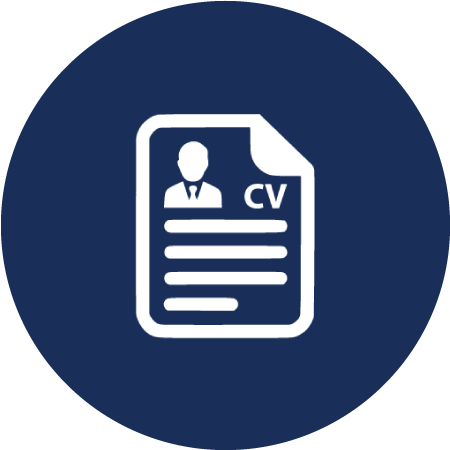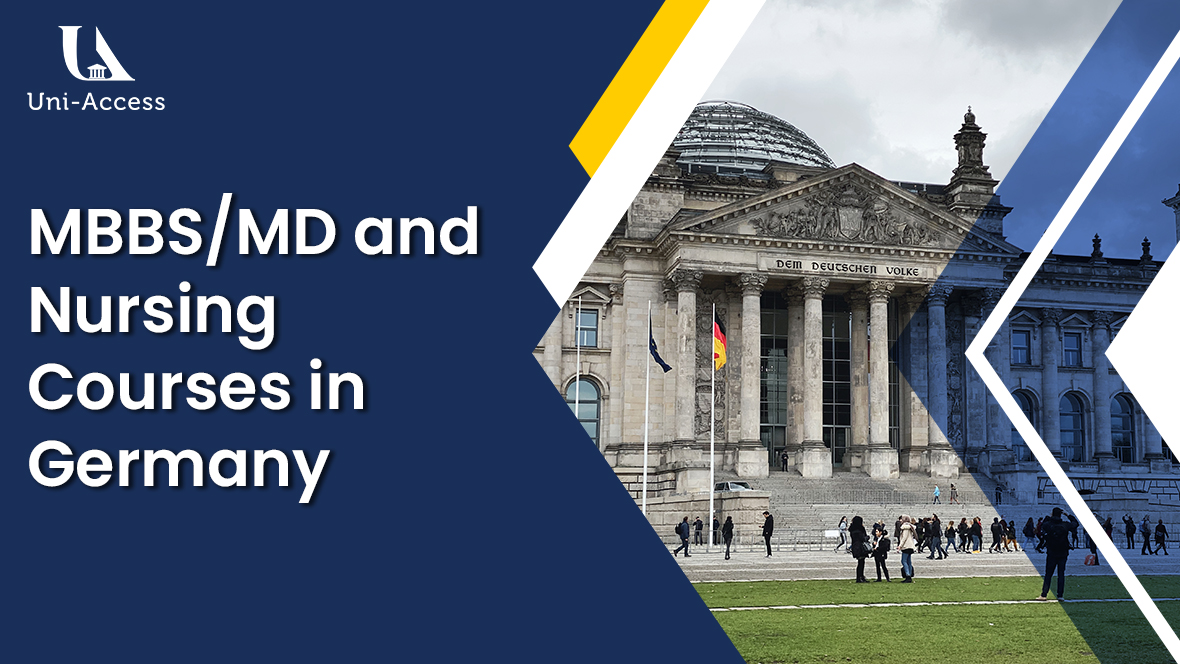Germany has been a top choice for ambitious medical professionals globally due to its reputation for quality in both education and healthcare. With its cutting-edge facilities, internationally renowned universities, and strong healthcare system, Germany provides students pursuing MBBS/MD and nursing programs with chances that are unmatched. We'll get into the specifics of studying nursing and medicine in Germany in this extensive guide, including the application procedure, course requirements, professional opportunities, and special benefits of doing so in the nation. To maximize your academic experience and assist with the process, think about speaking with a reputable study abroad consultant for Germany for individualized advice and support.
Curriculum and Education System
Medical Education
Germany's medical schools adhere to a set curriculum that aims to provide students with both theoretical and practical expertise. The curriculum is organized into two parts and usually lasts six years:
- Preclinical Phase: The initial two years focus on foundational sciences such as anatomy, physiology, biochemistry, and medical terminology. Students gain theoretical knowledge through lectures, seminars, and laboratory sessions.
- Clinical Phase: Students complete clinical rotations throughout the next four years to obtain practical experience in hospitals and other healthcare settings. Psychiatry, internal medicine, surgery, pediatrics, and obstetrics are just a few of the specialties covered by rotations. In addition, research projects, elective rotations, and clerkships are undertaken by the students.
Nursing Education
Nursing education in Germany emphasizes a combination of theoretical learning and practical training to develop competent and compassionate healthcare professionals. The curriculum varies based on the type of nursing program (e.g., general nursing, pediatric nursing, psychiatric nursing) but generally includes:
- Theoretical Courses: Topics include anatomy, physiology, pharmacology, nursing ethics, communication skills, and healthcare management.
- Clinical Practice: In hospitals, assisted living facilities, community health centers, and other healthcare settings, students participate in supervised clinical placements. While giving direct patient care under the supervision of seasoned nurses, they put their theoretical knowledge to use in practical settings.
- Specialization and Electives: Nursing students may have opportunities to specialize in areas such as critical care, oncology, geriatrics, or mental health. Elective rotations allow students to explore specific areas of interest and gain diverse clinical experiences.
Advantages of Studying in Germany
Studying medicine or nursing in Germany offers numerous advantages for international students:
- Quality Education: German universities are well known for their experienced faculty members, state-of-the-art research facilities, and high academic standards. Students are given a demanding and thorough education that equips them for lucrative professions in the medical field.
- Multicultural Environment: Germany promotes a multicultural learning environment by welcoming students from a variety of ethnic backgrounds. Global viewpoints, communication abilities, and cultural understanding are all improved by interacting with peers from around the world.
- Affordable Education: Germany provides reasonably priced living expenses and tuition for overseas students in comparison to many other nations. In addition, financial constraints might be lessened via grants, scholarships, and part-time jobs.
- Excellent Healthcare System: Studying in Germany provides firsthand exposure to one of the world's best healthcare systems. Students benefit from clinical training in state-of-the-art hospitals, gaining valuable insights into patient care, medical technologies, and healthcare practices.
- Career Opportunities: Graduates of medical and nursing programs from German universities are highly sought after globally. The reputation of German education, combined with practical skills and clinical experience, opens doors to diverse career opportunities in healthcare, research, academia, and public health.
Admission Process
Admission to medical and nursing courses in Germany follows a structured process, ensuring transparency and fairness. International students aspiring to study medicine or nursing in Germany must fulfill certain prerequisites:
- Academic Qualifications: Candidates must have completed high school or its equivalent, have excellent grades in science courses including biology, chemistry, and physics for medical school, and relevant topics for nursing schools.
- Language Proficiency: Being able to speak and understand German is essential for studying in Germany. Most educational institutions demand that students submit results from standardized tests, such as DSH or TestDaF, as proof of their ability. Preparatory courses to enhance language proficiency may be offered by certain universities.
- Entrance Exams: Certain colleges may need candidates to take additional admission exams, including the Test for Medical Studies (TMS) if they plan to pursue medical degrees. These tests evaluate students' academic preparedness and aptitude for studying medicine.
- Application Process: Interested students must follow deadlines and submit their applications to the relevant universities via the uni-assist portal. Academic transcripts, certifications of language competency, a CV, a motivation letter, and recommendation letters are usually included with the application.
- Interview: To determine whether a shortlisted candidate is a good fit for the program, they may be invited to an interview. Academic successes, reasons for seeking a career in medicine or nursing, and ethical considerations may all be discussed during the interview.
Entry Requirements
- Secondary Education Qualifications: To be eligible for undergraduate medical programs in Germany, students must have completed their secondary education or equivalent qualification with high academic achievements.
- University Entrance Qualification: Prospective students must possess a recognized university entrance qualification (e.g., high school diploma, A-levels, Abitur) that is equivalent to the German 'Abitur'. This is a fundamental requirement for admission to any higher education program in Germany.
- Pre-Medical Courses: Before applicants can submit an application for medical studies, some universities may require them to finish pre-medical courses or foundation programs. These classes give students a strong academic basis for their studies in medicine by covering topics including biology, chemistry, and physics.
- Entrance Examination (TMS): While not mandatory for all universities, some medical schools in Germany may require international students to take the Test for Medical Studies (TMS). This standardized test assesses candidates' cognitive abilities and scientific knowledge and is used by universities as part of the selection process.
- Academic Qualifications: Applicants for MBBS and MD programs must have finished their secondary schooling with a focus on science courses including biology, chemistry, and physics. A secondary education background with an emphasis on biology and health-related disciplines is typically required for nursing studies.
- Entrance Exams: Tests of Medical Studies (TMS) for medical programs and TestDaF (Test of German as a Foreign Language) for nursing programs are examples of entrance exams that some universities may require applicants to pass.
Eligibility Criteria
- GPA Requirement: Applicants are generally required to have a minimum GPA in their previous Relevant Experience: Some universities may consider relevant work or volunteer experience in healthcare settings as part of the eligibility criteria.
- Additional Requirements: Interviews, personal statements, and recommendation letters can be required, depending on the university and program.
- German Language Proficiency: Since most courses are taught in German, proficiency in the German language is essential. Standardized examinations like TestDaF, DSH (German Language University Entrance Examination for Foreign Applicants), or Goethe-Zertifikat are sometimes used to assess an applicant's competency.
- English Language Proficiency: While some universities offer English-taught programs, proficiency in English may still be required, especially for international applicants.academic qualifications, usually around 3.0 or equivalent.
Flow of Process
- Research and Shortlisting: Research different universities offering medical and nursing programs in Germany. Consider factors such as program curriculum, faculty expertise, research opportunities, and student support services.
- Application Preparation: Gather all required documents, including academic transcripts, language proficiency certificates, and any other supporting documents. Prepare for entrance exams if required by the chosen university.
- Application Submission: Send in your application by mail or via the university's online portal, according to the guidelines provided.
- Visa Application: Visit the German embassy or consulate in your home country after receiving an acceptance letter from the university. Make sure to submit all necessary documents, including proof of financial capability, health insurance, and details of your accommodation arrangements.
- Arrival and Enrollment: Upon receiving your visa, make travel arrangements to Germany. Attend the university's orientation program and complete the enrollment process. Obtain a residence permit if required for your stay in Germany.
- Language Preparation: If your German language skills need improvement, consider enrolling in language courses offered by the university or language institutes in Germany.
- Commence Studies: Begin your studies according to the academic calendar of the university.
Engage actively in classes, labs, clinical rotations, and extracurricular activities to make the most of your educational experience.
Studying medicine or nursing in Germany offers a unique and rewarding educational experience for international students. With world-class institutions, comprehensive curricula, and ample opportunities for practical training, Germany equips aspiring medical professionals with the knowledge, skills, and competencies needed to excel in their careers. By navigating the admission process with the help of the best overseas consultancy in India, embracing the multicultural environment, and leveraging the advantages of studying in Germany, students can embark on a fulfilling journey towards becoming compassionate and competent healthcare professionals.
















Write Comment